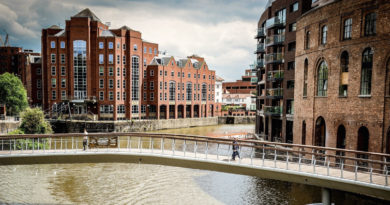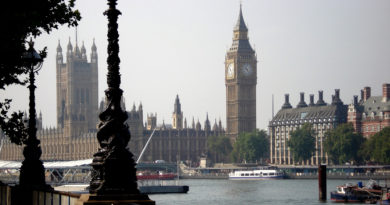How residence and citizenship by investment programmes work
Since the UK voted to leave the European Union, many British citizens have sought to secure their free movement rights by applying for the passport of another EU member state.
Ireland alone received 31,099 citizenship applications from Great Britain and 47,645 from Northern Ireland in the year to 30 June 2019, compared to just 6,011 and 20,325 respectively in 2015. Similar trends have been reported across Europe, including in the Netherlands and in Germany, where dual citizenship is allowed only in certain circumstances.
The appeal of an EU passport is clear: it provides citizen status in the issuing country, it ensures free movement rights in all EU member states, it allows the exercise of economic activities in the single market, and it warrants visa free access to many other countries around the world.
But it is national rules that determine how the citizenship of an EU country – and therefore EU citizenship – can be obtained. Typically, this can be acquired by birth, be it by descent (ius sanguinis) or by birth in the territory (ius soli), or by naturalization. The latter usually requires a period of residence in the country, a “genuine connection” such as the marriage to one of its citizens, or certain integration conditions, such as speaking the language and knowing the culture.
Some EU states, however, offer a shortcut, at least to those who can afford it. To attract foreign funds, several EU governments set up schemes to grant residence or citizenship to individuals making significant investments in the country.
The International Monetary Fund (IMF) traces the introduction of these programmes back to the 1980s and early ’90s in Canada, the UK and the US. In the 2000s, the rise of emerging countries, new conflicts and heightened security measures following terrorist attacks increased the demand of passports warranting rights in safe countries and unhindered travel, according to the IMF. And the 2008 financial crisis made the option attractive to governments looking to boost their finances.
But these schemes pose risks for “security, money laundering, tax evasion and corruption,” according to a report by the European Commission.
Residence and citizenship “for sale“
Bulgaria, Cyprus and Malta are the EU countries with citizenship by investment schemes. Bulgaria, which has recently announced the suspension of the programme, required an investment of one million euros.
In Cyprus the requirement is 2 million plus the ownership of luxury property. Malta requires a contribution of 650,000 euros to a national investment fund, plus an investment of 150,000 euros and property ownership. Cyprus and Malta also naturalise family members for additional money.
Effective residence is not required to obtain citizenship in this way, nor is the proof of a “real bond” to the county and its culture.
While not offering citizenship, other 17 EU states (Czechia, Estonia, Ireland, Greece, Spain, France, Croatia, Italy, Latvia, Lithuania, Luxembourg, the Netherlands, Poland, Portugal, Romania, Slovakia and the United Kingdom) grant permanent residence to major investors without requiring a physical presence.
The requirements for these so-called “golden visa” programmes vary and typically include property ownership, an investment in the country’s economy, a contribution to a public project in the arts, sports, health or education sector, or philanthropic support to artistic and research activities. The amounts range from 100,000 euros in Croatia to 5 million euros in Slovakia and Luxembourg.
While not being as far-reaching as EU citizenship, residence also grants third-country nationals free travel in the Schengen area and the possibility to acquire “long-term resident” status with similar rights to free movement (including family reunification).
According to anti-corruption group Transparency International, in the last ten years 6,000 people have acquired EU citizenship and some 100,000 have obtained residence rights in the EU through these schemes. In return, EU governments have received up to 25 billion euros.
Security and money laundering risks
But all that glitters is not gold. IMF experts have warned that these investments can be volatile and lead to governance, reputation and trust problems. The European Commission has specifically identified risks in terms of security, money laundering, tax evasion and corruption.
For instance, EU countries offering citizenship by investment usually request clean criminal records from applicants. But Malta can waive the requirement “where the competent authority considers such a certificate impossible to obtain” and Cyprus is not connected to the Schengen Information System which allows countries of the Schengen area to share security information.
Also, while EU member states consult on applications for short-stay visas issued to citizens from certain third countries, they do not consult for citizenship by investment programmes and do not inform each other of rejected applications.
For both residence and citizenship programmes grey areas have been flagged with regard to money laundering and possible tax evasion.
Finally, in most countries, the Commission reports says, investors’ family members are not subject to enhanced due diligence.
For “the criminal and the corrupt”
So who is willing to pay millions to obtain residence or citizenship in the EU?
Some investors might have a genuine interest but anti-corruption groups Transparency International and Global Witness last year published a report (“European Getaway – Inside the Murky World of Golden Visas”) showing how these schemes “opened the EU’s doors to the criminal and corrupt.”
When the Maltese government published the list of new citizens in December 2017, a requirement by law, journalist and IT expert Matthew Caruana Galizia reminded on Twitter that “obfuscated among them” there were those who had paid 650,000 euros for the privilege of a Maltese passport. “This list provides ripe pickings for investigative journalists from all over the world,” he said.
Matthew’s mother, Maltese journalist Daphne Caruana Galizia, had been murdered two months earlier following her investigations into corrupted politicians and money laundering through the citizenship by investment programme.
Another investigation by The Guardian in 2017 revealed that many super-rich used the Cyprus scheme to acquire EU citizenship. Among them, there was also Rami Makhlouf, cousin of Syrian president Bashar al-Assad, although his citizenship was later revoked.
Towards a crackdown of such schemes?
In 2014, the European parliament warned that these schemes are equivalent to an “outright sale” of passports and they undermine the very concept of EU citizenship.
Following the January report, the European Commission announced the creation of a group of national experts to assess the situation. The group is expected to develop a common set of security checks and risk management processes for money laundering, tax evasion and corruption by the end of 2019. But the EU does not have powers when it comes to citizenship issues and a crackdown on these schemes might still be far.
On their part, campaigners have been critical of this approach. “The Commission’s recommendations are a drop in the ocean. Binding security checks and mandatory lists are not enough, especially in countries with weak rule of law,” said German MEP Sven Giegold. “Golden visa and passport programmes should be stopped immediately,” he argued.
Lucinda Pearson of Transparency International commented that the Commission report “fell short of the urgent action needed to clean up the shady industry.”
In a blog post she wrote: “They failed to propose EU-wide due diligence standards and shifted most of the responsibility back to those who have little incentive to end these lucrative schemes – the member states.”
Claudia Delpero © all rights reserved.
Image by Jacqueline Macou from Pixabay.





